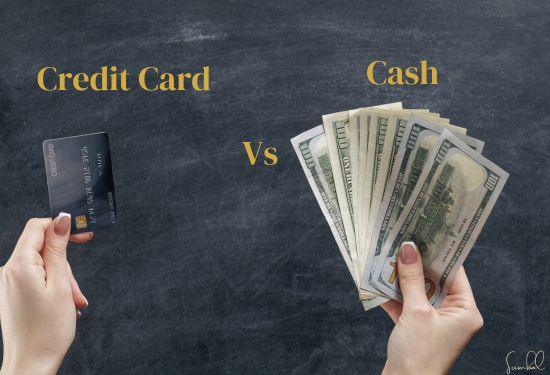When making purchases, one of the most important decisions of the day is whether to use credit cards or cash. Both have particular strengths and weaknesses that define how individuals pay, invest, and manage their money. Let's explore each's advantages and disadvantages to decide which is more suitable for daily transactions.

1. Advantages of Using Cash
Enhanced Spending Control
You can see your money, spend it, and count the real money left, making it easier to control your budget. This is handy for those who usually spend more money than they should because it is very simple to set limits by having a certain amount of cash.
No Interest or Fees
Cash transactions have no interest, annual fees, or penalties. This simplifies management, as one can easily control expenses without worrying about more debt.
Greater Privacy
Transactions cannot be tracked without using a card. Paying with cash rather than cards is simple for those who prefer to do so, and cash is an option for individuals who like to keep their spending habits unknown.

2. Limitations of Using Cash
Lack of Security
Cash is more vulnerable to theft or loss, with minimal chances of recovery. It's dangerous for larger transactions because there are no fraud protections for cash like for credit cards.
Inconvenience in a Digital World
Cash users may have some restrictions as more merchants and service providers turn to cashless businesses. Sometimes, a cardless method, such as paying for a ride-share, buying online, or visiting certain stores that do not accept cash, is inconvenient.
No Rewards or Benefits
Although cash makes spending easy and convenient, it lacks incentive programs such as points, cash back, and other benefits seen when employing a credit card.
3. Benefits of Using Credit Cards
Convenience and Security
Credit cards also have several measures of security, like protection from fraud. The cardholder has the option to block or replace a lost or damaged card. Credit cards are recognized for both physical and online purchases.
Reward Programs
Numerous credit card rewards, such as cashback, travel miles, or points, make everyday spending worthwhile. Using a rewards card can be advantageous, as it gives the cardholder the chance to earn on purchases in everyday life.
Building Credit History
A credit card, if used fairly to pay for purchases, can be an added advantage in creating a good credit score, especially when applying for a loan or making a mortgage to secure a property with a better interest rate.
4. Drawbacks of Using Credit Cards
Interest and Fees
Interest and yearly fees are assessed if you can carry a debt from one month to the next. However, if these costs are not well controlled, they can accumulate.
Debt Accumulation.
Credit cards can increase overspending, and because of revolving debt in credit cards, the balance can grow very fast. If used without discipline, the user can get into a debt cycle.
Which Option is Better for Daily Transactions?
The answer mainly lies in a person's decision-making and economic literacy. Moderation is the best solution most of the time. Sticking to cash can be more effective for minor expenditures since one is more careful than when charged against credit cards, which one can work on responsibly for extra rewards. Using a budget as a spending discipline, cash and credit cards are useful in day-to-day expenses.



